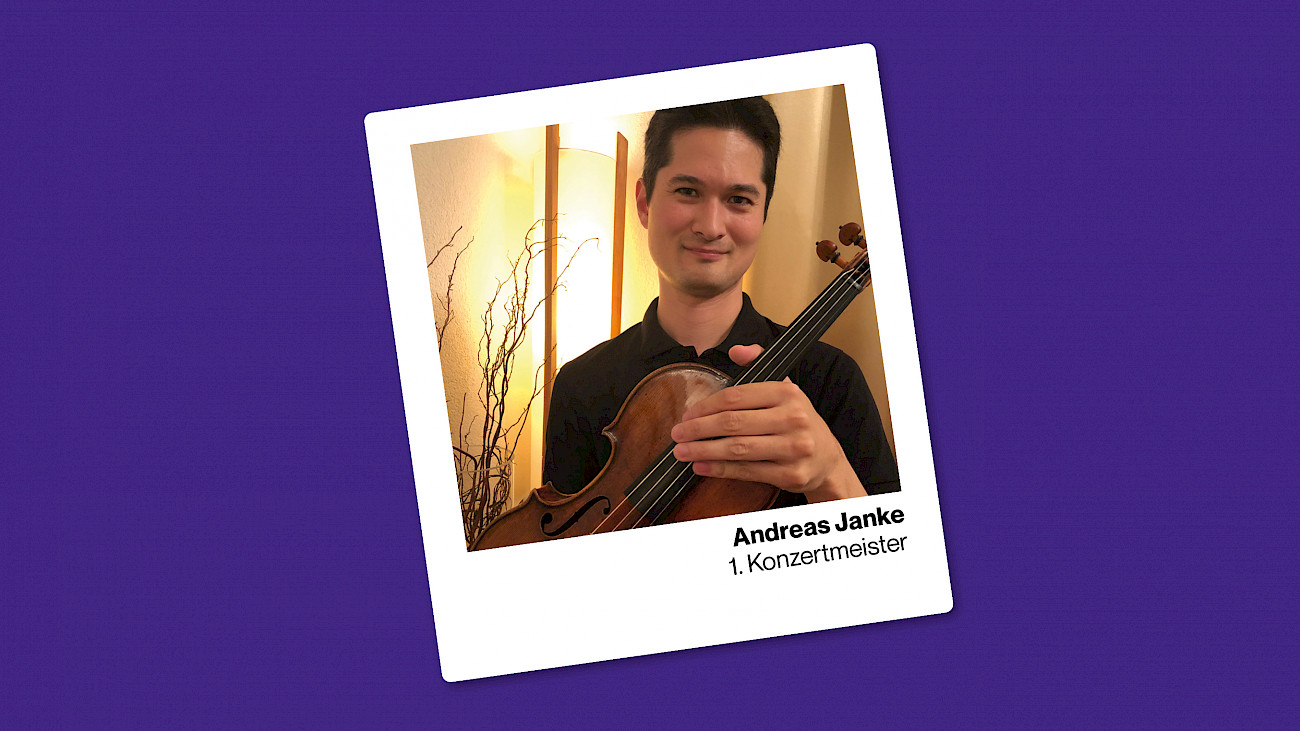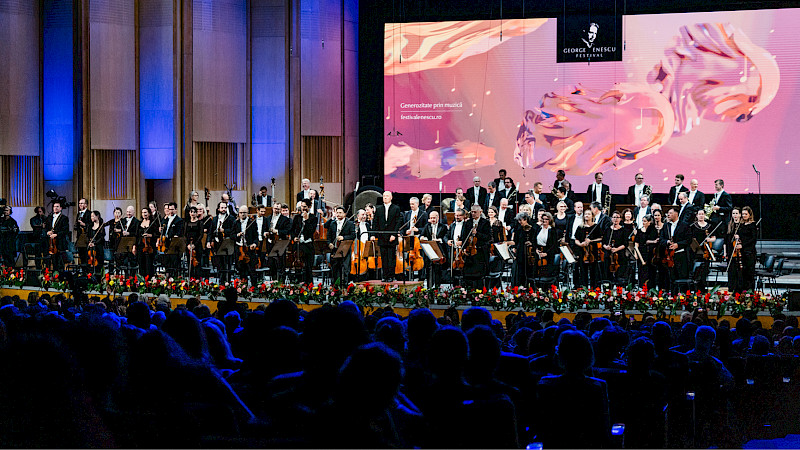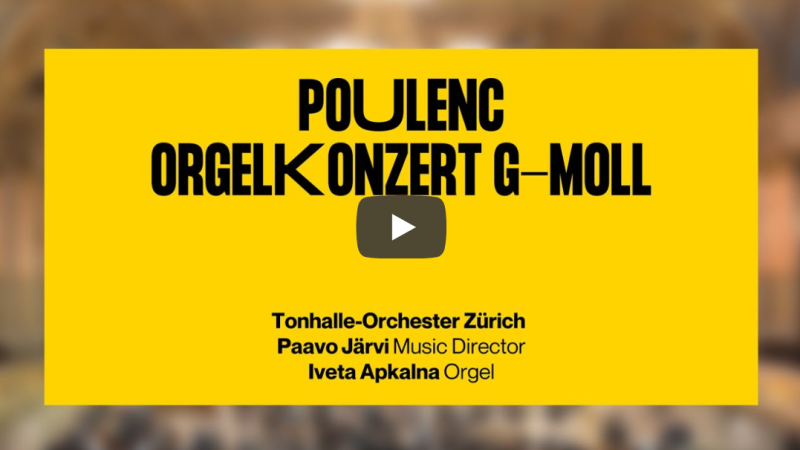
An exhilarating shark tank
Andreas Janke is one of the Tonhalle-Orchester Zürich’s three concertmasters, a professor at Zurich University of the Arts as well as a celebrated chamber musician. Discipline, he says, is in his DNA. But now his life has taken a turn: Andreas wants to rethink his priorities.
When Andreas Janke wakes up in the morning with a stomach ache, longing for the evening, it’s probably because there will be auditions with the orchestra, when a new position will be filled. He is an optimistic person, grateful for the good fortune of being able to meet the demands of both his role as concertmaster and his professorship in the same city. Grateful to be able to share his love of music with his wife – and grateful for his daughter, who was born in the middle of the coronavirus lockdown.
Today, having been through an audition, he’s sitting in the autumn sun at the Rivington next door to the Tonhalle Maag, satisfied that a new colleague has been found and is starting as first violinist. Andreas sympathises with the candidates. Hundreds apply each time, and a small selection are allowed to audition behind a curtain so that everyone has the same chance. Usually, a few bars from Mozart’s violin concerto are played first, followed by something romantic in the second round, and then passages from orchestral works. In each case, the entire section of the desired instrument is present, and at least a quarter of each of the other instrument groups must be present. The Chief Conductor has the right of veto.
Concentration and dedication
Andreas vividly remembers that spring morning 15 years ago when he travelled from Salzburg to attend his own audition for the post of concertmaster. He left the hotel in the city centre three hours before his appointment. A city map led him to the Tonhalle am See for the first time, which he entered well before everyone else so that he could concentrate on his rehearsal. Andreas had previously known the orchestra only through the recording of the Beethoven cycle with David Zinman: “What a sound,” he thought to himself whenever he heard the music. “Orchestral playing like I’d never heard before – that incredible lightness and freshness of interpretation.” This recording gave him the impression of the orchestra’s joy in making music, which he experiences to this day and continues to fill him with pride.
Now 37, Andreas was already playing a Stradivarius made available to him as a 19-year-old student. He won prizes at a number of prestigious competitions and travelled to Zurich on the recommendation of his professor, Igor Ozim, in whose master class he was studying at the Mozarteum in Salzburg. Ozim had already taught the then concertmaster of the Tonhalle-Orchester Zürich and recommended that Andreas audition with him and ask for an assessment.
So he did. As both the first and second concertmaster positions were vacant and he lacked any orchestral experience, his predecessor advised him to take on the role of second concertmaster. “It’s a bit of a shark tank to be in charge of such an unfathomable organisation when you’re a shy 22-year-old. I’m not the type of person who would claim to be a leader.” And yet the sharks became his friends, and Andreas became first concertmaster after two years; they probably took on the natural authority that he radiates when he sits bolt upright in his chair, steering the orchestra and passing on impulses, expressing concentration and dedication. “Learning by doing,” he says modestly. The two concertmasters and the concertmistress assist each other. Andreas still enjoys being the second concertmaster – a co-pilot. This is also a delicate task that requires a feel for the moment, vigilance and clear signals, as well as subordination.
In both roles, he listens to recordings and studies scores in preparation. At what moment do you lead, with whom do you come into contact and when? Andreas is fascinated by the world of the orchestra every day: “In what other profession do a hundred people do exactly the same thing at the same time to create something beautiful?” He never had a desire for a career as a soloist, even though he takes on this role time and again.
Care in every nuance
What Andreas likes about his role as concertmaster are the subtleties that are important when building bridges between conductor and orchestra – and the leeway provided by this translation. It is rightly said that musical notation is the most imprecise form of writing. Deciding in fractions of a second whether to adapt the tempo from the front or wait for the basses, for example? How to take everyone with him, when to pull, when not? “Paavo Järvi is someone who comes with a very clear concept, but also has great skill in spontaneously responding to what he is offered in concert. Paavo doesn’t insist on what he has worked out in rehearsal. That agility demands great vigilance from us. There are nuances that characterise moods. For a concertmaster, this is both exciting and challenging.” Andreas’s eyes shine with pleasure: “When everyone is moving in the same direction, when we have created a world together, something exhilarating emerges.”
“The artist,” says Andreas, “thrives on curiosity and doubt.” Without these two companions, the journey is over. “You have to have the greatest possible self-doubt when it comes to preparation and the greatest possible self-confidence on stage. That’s the paradox; that’s what drives us all.” When Andreas is asked how he would describe the sound he strives for, he says: “Accuracy is important to me.” Care and thoroughness, precision, perfection. He places two fingers on his forehead: “This is where the work begins.” And then to his heart. His Stradivarius has now been replaced by a violin by Carlo Bergonzi. He likes its darker, almost viola-like timbre, as he describes it, and prefers it to the bright and radiant sound of a Stradivarius.
Discipline in his DNA
“I’ve always worked very hard, driven by the desire to get better at my instrument,” Andreas says, and he also tells his students to concentrate on the moment, not to make plans, but to work on themselves. He himself knows no life without the violin. What’s more, his path was predetermined long before he was born. Discipline is in his DNA. His only vice: jelly babies.
Andreas was born in 1983 as the third of four children into a German-Japanese family of musicians, in a house in Gröbenzell outside Munich that was large enough for each of the children to have room to practise. His parents were pianists, his father a professor at the Munich Academy of Music. Andreas’s younger sister is now concertmaster in the Staatskapelle Berlin, his elder brother a cellist in Saarbrücken, and his elder sister a concert pianist who also performs a great deal of chamber music as well as being a répétitrice. And once a year, the siblings get together in their home village to give a concert. Andreas wants to pass on to his daughter the culture that his parents transmitted to him, the mentality and attitude that underlie his character. His Taiwanese wife Yi-Chen LIN is also a musician. She has repeatedly helped out as a violinist in the Tonhalle-Orchester Zürich and has just taken up a new position as a conductor: she is Kapellmeister at the Deutsche Oper Berlin.
For the family, this means commuting. Andreas’s world has changed. After the birth of his daughter, he did the unthinkable: he didn’t play his violin for a whole month. He never wants to do that again – having suffered so much when he started practising again. And yet he wonders: “Will I continue to start the day at eight o’clock and finish it at 11 p.m.?” Andreas wants to reflect. “My priorities in life are changing very quickly at the moment. I’ve been working like a madman for the last ten years, juggling my life between orchestral work and rehearsals, my own engagements and teaching.” How he intends to organise his and his family’s schedule in the future remains to be seen. But there is no doubt that music will remain Andreas’s life.





